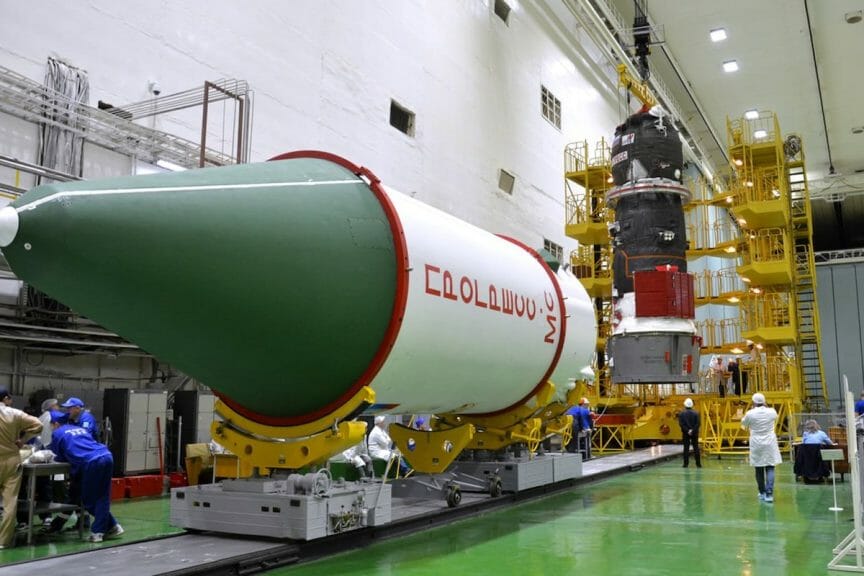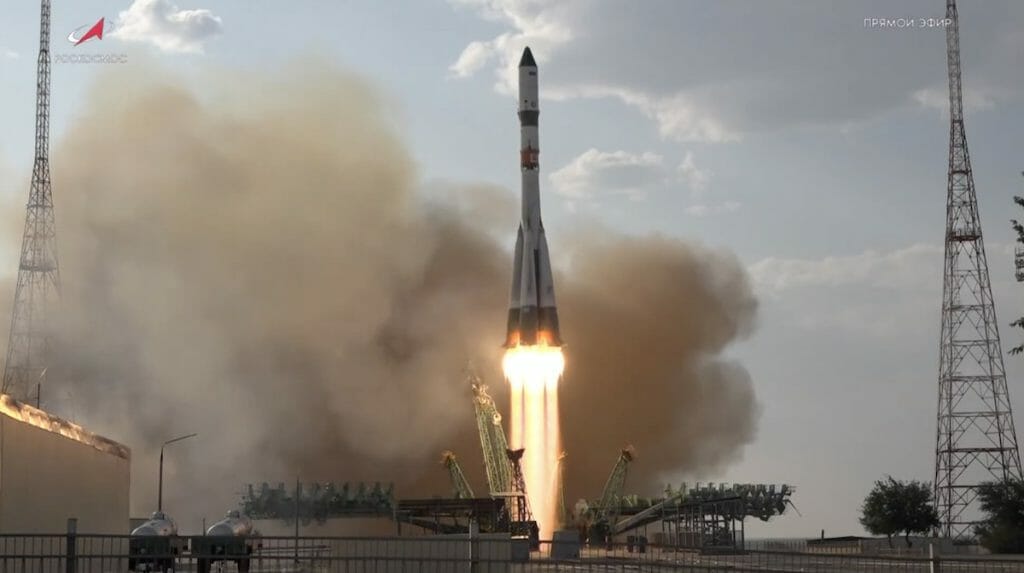The successful launch and docking of Russia’s Progress MS-23 cargo freighter marks another milestone in resupplying the International Space Station (ISS).
Loaded with more than 2.7 tons of vital supplies, the Progress spacecraft will provide fuel, food, experiments, and equipment to support the astronauts aboard the orbiting laboratory.
The launch took place from the Baikonur Cosmodrome in Kazakhstan, where the Progress MS-23 spacecraft was carried by a Soyuz 2.1a rocket. Following liftoff, the rocket shed its boosters, and the cargo ship separated from the rocket’s upper stage. The Progress MS-23 then embarked on a series of engine firings to align its orbit with that of the ISS.
After a radar-guided rendezvous, the Progress MS-23 precisely approached the Russian segment of the ISS and docked with the Poisk module. With the completion of docking, the cosmonauts on board the ISS will soon begin unloading the supplies and equipment from the cargo spacecraft.
Liftoff of the Soyuz rocket from the Baikonur Cosmodrome with Russia's Progress MS-23 cargo freighter carrying nearly 5,500 pounds (about 2.5 metric tons) of supplies, experiments, fuel, and food to the seven-person crew on the International Space Station. https://t.co/Jhh06PRcJV pic.twitter.com/fCSQlQaslJ
— Spaceflight Now (@SpaceflightNow) May 24, 2023
Among the cargo carried by the Progress MS-23 is a nanosatellite developed by Bauman Moscow State Technical University. This small satellite, designed to test solar sail deployment technology, will be deployed into orbit during a future spacewalk. Additionally, the mission delivered a video system for Russia’s Uragan experiment, which monitors changes on Earth’s surface related to natural and human-made disasters. The cargo also includes a scientific glove box and biomedical equipment for conducting experiments.
With its successful launch, the Progress MS-23 mission contributes to the ongoing operations and research conducted aboard the ISS. The resupply efforts ensure that the astronauts have the necessary resources to continue their scientific investigations, maintain their health and well-being, and support the overall mission objectives of the ISS.
The arrival of the Progress MS-23 cargo freighter is a vital lifeline for the International Space Station, enabling the crew to replenish their essential supplies and continue their important work in space. The delivery of fuel ensures that the station can maintain its orbit and make necessary adjustments to avoid space debris. Food and clothing provisions ensure the astronauts’ well-being, while medical equipment supports their healthcare needs.
• 3,399 pounds (1,542 kilograms) of dry cargo
• 1,080 pounds (490 kilograms) of liquid propellant to refuel the Zvezda service module
• 926 pounds (420 kilograms) of fresh water
• 88 pounds (40 kilograms) of nitrogen to replenish the station’s atmosphere
One notable aspect of the cargo is the inclusion of a scientific glove box and equipment for biomedical experiments. These instruments will enable the astronauts to conduct various scientific studies in microgravity, furthering our understanding of human physiology and the effects of space travel on the human body. Such research is crucial for future long-duration missions, including those to the Moon and Mars.

The nanosatellite carried by the Progress MS-23 adds an educational and technological aspect to the mission. Developed by Bauman Moscow State Technical University, this small satellite will facilitate the testing of solar sail deployment technology. Deploying it during a spacewalk demonstrates the ongoing collaboration between academia and space agencies to advance our knowledge and capabilities in space exploration.
The video system for Russia’s Uragan experiment is another significant contribution of the cargo. This experiment focuses on monitoring changes on Earth’s surface, providing valuable data on natural and human-made disasters. By observing and analyzing these changes from space, scientists can gain insights into environmental processes, track the impact of human activities, and aid in disaster response and management on Earth.
The successful launch and docking of the Progress MS-23 cargo freighter highlight the continued cooperation and coordination among international partners in supporting the ISS and its scientific endeavors. The resupply missions play a crucial role in sustaining the operations and research conducted aboard the space station, pushing the boundaries of human knowledge and paving the way for future exploration beyond Earth’s orbit.
As the crew begins to unload and utilize the cargo brought by the Progress MS-23, they embark on a new phase of their mission, furthering our understanding of space, conducting cutting-edge research, and advancing humanity’s presence in the cosmos.














